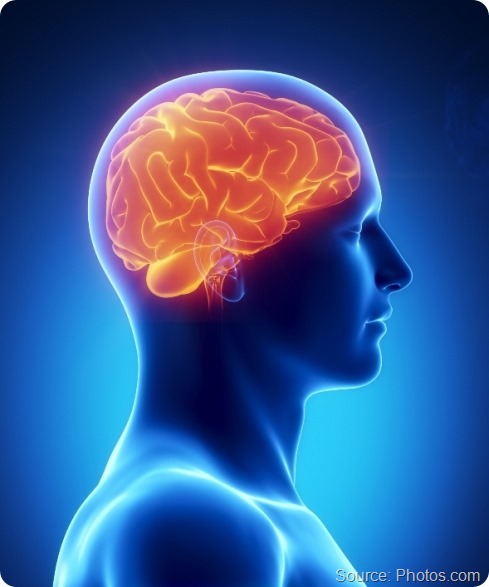Frontotemporal dementia (FTD) is a progressive neurodegenerative brain disorder, which affects the frontal and temporal lobes. Unlike other types of dementia, it more commonly occurs in individuals in their 50s and 60s, and is therefore referred to as a “younger-onset dementia”.
Patients with FTD experience changes in their behaviour and personality (known as behavioural-variant FTD), or difficulties in understanding and producing language (known as semantic dementia or progressive nonfluent aphasia). More recently, it has been recognised that problems with emotion are very common in patients with FTD, irrespective of what clinical subtype they are diagnosed with.
Do all patients with FTD struggle to vividly remember emotional events such as weddings and so forth?
In healthy people, emotional events are remembered more readily and vividly than other non-emotional events. For example, the memory of a wedding you went to recently is probably a lot more detailed than the memory of what you did the night after. Unlike everyday non-emotional memories, emotional memories tend to contain very specific details of the event such as smells, sounds, or who took part in the event.
Until now, no one had examined how people with FTD remember these types of emotional events, despite increasing evidence that other aspects of emotion processing are affected in these patients. The results of our study indicate that patients with FTD fail to experience this emotional boost in their memories. In other words, memories for highly emotional events are no different to those of everyday mundane events.

How are emotional memories formed in the brain?
Emotion plays an important role in how memories are formed. When you are in an emotional situation, the particularly emotional aspects of the event will capture your attention.
For example, after people have witnessed a robbery they will clearly remember what the weapon looked like, but pay much less attention to the robbers face.
In addition, after an emotional event people tend to think about the details of an event more than non-emotional events, which may further boost memory for these emotional events.
The enhancing effect of emotion is dependent on the part of the brain known as the amygdala, a small region located deep within the middle of the brain.
Our study demonstrated that this emotional boost to memory also requires the participation of a different brain region: the orbitofrontal cortex. This finding gives us a better understanding of where emotional memories are formed in the brain.
What was previously known about the way in which FTD affects the emotional content of memories?
This is the first time that emotional memories have been studied in FTD, despite mounting evidence that other aspects of emotional life are affected in these patients.
Patients with FTD have difficulty in understanding how other people are feeling, and also tend to be less expressive in their emotions, suggesting that the parts of the brain important for emotion are affected.
In addition, families of patients report that people with FTD become disengaged and less motivated to attend family events. Together, these symptoms led us to suspect that the quality of emotional memories might be different in FTD.
What did your study involve?
We showed patients with FTD, patients with Alzheimer’s disease and healthy older adults, pictures that normally evoke an emotional response (e.g., snakes, car accidents, premature babies) and tested their memory for the emotional pictures compared to non-emotional pictures (e.g., houses, cutlery, furniture). We then used a brain imaging technique, known as voxel-based morphometry, to identify the regions of the brain associated with the degradation of emotional memories.

What were the findings of your research?
We discovered that FTD patients showed no benefit of emotion: for FTD patients the emotional pictures were as memorable as the non-emotional pictures. In contrast, Alzheimer’s disease patients and controls remembered significantly more emotional pictures.
When we related this to the changes in their brain, we discovered that shrinkage in the orbitofrontal cortex was responsible for the degradation of emotional memories in the FTD patients.
Do you expect your research to impact the way in which dementia is diagnosed going forwards?
Accurate diagnosis of dementia remains difficult, particularly in the early stages of the disease. This research will contribute to this process. Being able to differentiate between types of dementia is crucial in ensuring that the patient receives the most appropriate treatment. As drug therapies become more available, ensuring that the patient is treated for the correct underlying dementia syndrome is critical.
One of the promising parts of our study is that the way people performed on the emotional memory task differed depending on if they had Alzheimer’s disease or FTD. Only Alzheimer’s disease patients showed a boost in their emotional memory. Thus, using tasks such as these, which help differentiate between FTD and Alzheimer’s disease, may improve the ability to diagnose dementia accurately in the future.
What impact do you think your findings will have on the lives of those who care for patients with FTD?
Families and friends of individuals with FTD experience high levels of stress and burden. The patient’s difficulties in understanding how people are feeling, acting appropriately in social situations, and being motivated to take part in family events, undoubtedly contribute to these increased levels of distress.
Imagine you attended your daughter’s wedding, or your friend’s funeral, and this event was as memorable as going to do the groceries. Our research indicates that this is what life is like for patients with FTD.
Often, families don’t realise that when a person with dementia shows a change in behaviour or their personality, and becomes more distant, this change is part of the disease. We hope that helping families understand how patients’ memories are stripped of emotional content will assist them in dealing with these challenging dementia symptoms, and give them some insight into how dementia is affecting their loved one.
We also hope that our research will help provide new avenues for management and the development of interventions that specifically target these distressing emotional functioning difficulties.

How do you think the future of our understanding of dementia will develop?
At the moment researchers are working diligently to diagnose dementia accurately, understand the pathological changes occurring in the brain and discover how these processes might be reversed or slowed.
Although no treatments or cures are currently available, promising drug therapies are currently being developed and tested. In the meantime, we hope that research such as ours will help improve the quality of life for patients and carers.
What are your further research plans?
We are very interested in how problems with emotional functioning impact on how FTD patients feel and express different emotions. We hope that by clearly understanding the different facets of the emotional disturbance in these patients, we will be able to improve the quality of life for patients and their carers, and develop new therapies targeting this devastating disease.
Where can readers find more information?
About Dr. Fiona Kumfor and Assoc. Prof. Olivier Piguet, NeuRA
Assoc Prof Olivier Piguet is a clinical neuropsychologist at NeuRA with over 15 years’ experience in dementia research. He obtained his PhD from the University of Sydney and completed his postdoctoral training at MIT in the USA.
Assoc Prof Piguet is the co-director of FRONTIER, the frontotemporal dementia clinical research group based at Neuroscience Research Australia (NeuRA) in Sydney and the director of the memory program of the Australian Research Council (ARC) Centre of Excellence in Cognition and its Disorders. His research focuses on early presentations of FTD and related disorders, with a particular interest in the biological correlates of social cognition, memory and behaviour. He has published over 75 scientific papers on the topic.
Assoc Prof Piguet is supported by a National Health and Medical Research Council (NHMRC) Career Development Fellowship. His research is funded in part by grants from the NHMRC and the ARC.
Dr Fiona Kumfor holds a Masters in Clinical Neuropsychology (Macquarie University) and a PhD in Neuroscience (University of New South Wales). She has been involved in ageing and dementia research for the past 5 years.
Dr Kumfor joined FRONTIER the team in 2010, and completed her PhD investigating how emotional functioning is affected in FTD and how this impacts on individual’s memories for emotional events.
Dr Kumfor is now a postdoctoral Research Officer at FRONTIER. She continues to investigate changes in emotional functioning in dementia. Her current project is to study how the ability to express and feel emotions is affected in younger-onset dementias.